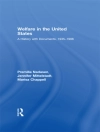The rule of law, an ideology of equality and universality that justified Britain’s eighteenth-century imperial claims, was the product not of abstract principles but imperial contact. As the Empire expanded, encompassing greater religious, ethnic and racial diversity, the law paradoxically contained and maintained these very differences.
This book revisits six notorious incidents that occasioned vigorous debate in London’s courtrooms, streets and presses: the Jewish Naturalization Act and the Elizabeth Canning case (1753–54); the Somerset Case (1771–72); the Gordon Riots (1780); the mutinies of 1797; and Union with Ireland (1800). Each of these cases adjudicated the presence of outsiders in London – from Jews and Gypsies to Africans and Catholics. The demands of these internal others to equality before the law drew them into the legal system, challenging longstanding notions of English identity and exposing contradictions in the rule of law.
Table of Content
Introduction: Empire and law, ‘Firmly united by the circle of the British diadem’
1 Internal others: Jews, Gypsies, and Jacobites
2 ‘In a country of liberty?’:Sslavery, villeinage and the making of whiteness in the Somerset case (1772)
3 Imperial disruptions: City, nation, and empire in the Gordon Riots
4 ‘This fleet is not yet republican’: Conceptions of law in the mutinies of 1797
5 Wedding and Bedding: making the Union with Ireland, 1800
Conclusion
Select bibliography
Index
About the author
Dana Y. Rabin is Associate Professor of History at the University of Illinois, Urbana-Champaign












